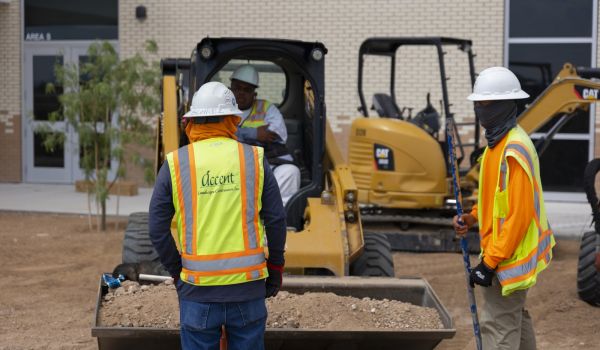In the pandemic era, communities across the U.S. face heightened challenges. Widening racial wealth gaps, COVID-related rent displacement and the silver tsunami — the impending retirement of some 2.34 million baby-boomer business owners — continue to transform and threaten local economies. These challenges are historic in scale and impact, and they require cities to take decisive action at a critical decision point: re-establish the status quo or invest in new strategies that build local economic resilience.
For cities seeking new strategies, employee ownership of small businesses is a proven, widespread solution increasingly included in economic development toolboxes. More than 6,000 firms have some form of employee ownership in the U.S. Its track record of impact and potential to address racial and gender wealth gaps are well documented. Resources to support employee ownership are more available than ever before. $3 billion in employee-ownership eligible funding has been allocated to the Department of Commerce’s Economic Development Corporation through the American Rescue Plan Act (ARPA). The $10 billion State Small Business Credit Initiative (SSBCI) similarly makes financing and technical assistance to help employees buy their businesses an allowable use of funds. These newly-established programs provide funding cities and their small business partners can tap when facilitating successful transitions for local businesses.
A toolkit by Democracy at Work Institute (DAWI) and the National League of Cities can help municipalities put ARPA and SSBCI funding to use. The Municipal Playbook for Employee Ownership provides an in-depth look at successful employee ownership strategies for helping workers with barriers to employment access work and assisting very small businesses to achieve economic scale and reduce admin costs through secondary cooperatives. These can serve as blueprints for city leadership seeking the benefits that the business model affords.
One particular strategy included in the toolkit focuses on preventing closures of successful long-standing businesses by helping them transition to employee ownership. By looking at the successes and lessons learned in other cities, municipal leaders can bring critical takeaways back home to head off a wave of potential — and preventable — business closures.
The legacy business preservation strategy detailed in The Municipal Playbook for Employee Ownership is presented in three steps: 1) know your legacy businesses, 2) facilitate ownership transitions, and 3) provide financial support.
1. Know Your Legacy Businesses
Municipalities can begin supporting employee ownership by getting to know the businesses in their communities. Implementing a registry of legacy businesses can help cities learn which businesses are a fit for ownership transitions and what forms of support they would benefit from. It also offers cities guidance on how to best connect with and aid local businesses. Data collected through a registry can yield business location, employee demographics, business size, longevity, and potential closing dates.
A registry can also help cities identify the organizations and individual agents best fit to introduce business owners to employee ownership. As many business owners are unfamiliar with the model, identifying trusted community messengers is important. Ideal messengers include influential groups focused on developing small and large businesses, such as industry and merchant associations, economic development corporations, and chambers of commerce. Business-facing intermediaries that address everyday operational concerns, such as accountants, banks and credit unions, and workforce agencies are also capable partners.
San Francisco successfully created a registry of its legacy businesses to support long-standing businesses in danger of being priced out of town.
The city implemented an innovative two-step plan. First, it provided local businesses with an opportunity to apply for special legacy business status. Then the city helped designated legacy businesses and their landlords access grants for lease extensions. Together, these steps help San Francisco keep businesses producing significant economic and cultural value in place. The financial assistance is tied to educational and promotional assistance, as well as to tools that establish succession plans to transition to employee ownership, ensuring the continued life of the business.
“The intent of the Legacy Business Program is to maintain San Francisco’s iconic, longstanding businesses to the greatest extent possible,” says Richard Kurylo, legacy business program manager with San Francisco’s Office of Small Business. “When a business owner retires, the best thing they can do to keep the business going is to pass the torch to someone who cares. Employee ownership is a good succession strategy because employee-owners care about the business on a different level. It’s legal ownership, but it’s also emotional ownership. It’s a great business model.”
2. Facilitate Ownership Transitions
One significant hurdle for employee ownership is a lack of know-how on the part of business owners and their local service providers. As owners look to exit their business, they may look for the simplest and most natural solution, such as a quick sale. It’s therefore important that city leaders make it as easy as possible for business owners to help business owners navigate transitions to employee ownership through educational resources.
Events for business owners or key figures within the community can educate them on the benefits and processes of transitioning to employee ownership. Such events can save time by providing the ability to educate a crowd at once, but the particularities of the transition process mean the events should still be tailored to businesses based on factors like size and industry.
Common hurdles to clear for cities in setting up these events include a lack of staff with employee ownership expertise and, of course, funding. But there are more resources available than ever before to help cities support employee ownership. Cities without local expertise can partner with regional or national organizations, such as state employee ownership centers and qualified technical assistance providers. If funding doesn’t allow for developing a stand-alone employee ownership initiative, consider folding this effort into existing programs. Minneapolis used this tactic by expanding its Business Technical Assistance Program with the Cooperative Technical Assistance Program, which offers free training for potential and new cooperatives and existing businesses converting into a cooperative.
“We keep the program sustainable by keeping it under the larger umbrella of the Business Technical Assistance Program” while offering specialized training for employee ownership, says Emily Peterson, business training coordinator for the City of Minneapolis. She points out that it’s worth it to the city because local businesses do more than sell a product or service. “They’re not only trying to turn a profit, but they often really want to serve the community they’re in. They’re trying to form a community space that serves the greater good,” Peterson says.
A city-hosted website or hotline can introduce business owners to the basics of employee ownership and provide information on how to access resources and assistance.
Santa Clara, California implemented a web page and portal where business owners could learn more for themselves and connect to resources and experts. New York City went a step further with a hotline: local business owners call in and are connected with experts through its Owners to Owners Business Transition Line, an Employee Ownership NYC initiative. The city also funded technical assistance providers to do outreach to business support organizations and service providers to educate them about how to support business transitions.
3. Provide Financing Support
Awareness and know-how are critical but, of course, obtaining appropriate financing is a key component of any transition to employee ownership. Fortunately, it’s possible for cities to provide financial support without taking on significant risk.
Making things difficult for many prospective employee-owners, seller financing of a business sale doesn’t work in every situation, and Small Business Administration loan programs require personal guarantees, creating a capital access gap for workers seeking to purchase their workplace from a selling owner.
Employee owners need equitable capital access, and that’s where cities can come in. A public loan guarantee pool allows cities to help address the financing gap by covering a borrower’s debt obligation, incentivizing traditional lenders to finance transitions by mitigating the upfront risk for lenders. Cities have also gotten creative in other ways. Miami found success amending its Economic Development Loan Fund to include business transitions to employee ownership. The program authorized a maximum loan of $80,000, with larger loans approved by the city on a case-by-case basis.
Berkeley, California also amended its loan program to allow for worker cooperatives to access the program, specifically by leap-frogging the issue of personal guarantees through a small technical innovation. The city redefined personal guarantees regarding worker cooperatives, expanding the definition to include a panel of at least 50 percent of ownership in the cooperative, with each member responsible for an equal share.
“You should really put any cooperative at ease, to let them know that we are encouraging and we’re flexible, and we found ways to be more efficient, to get them funding. It’s low-hanging fruit but means a lot when you’re in that space,” says Kieron Slaughter, chief strategist, economic innovation for the city of Berkeley, noting that these simple changes have reaped a lot of economic return for the city.
“The continuity of a business is important, given the momentum it takes to drum up new business, new clientele. In the same way you wouldn’t want to demolish a building, but ideally preserve it for a new use, you want to retain as much of a legacy business as you can. A lot of it’s intangible. It’s not just equipment, brick and mortar, but it’s the energy… When businesses reach certain age milestones, it gives them more credibility, they build a larger customer base, and they get customers for life. So ideally, you’d want a business to outlive a person’s life so that it’s there in perpetuity for future generations to enjoy.”
The approach has been approved at the federal level, having been reviewed by the Economic Development Administration, likely making it a model other cities can replicate.
That fix, along with many of the above examples, points to no-cost or low-cost solutions that reap high rewards. Cities that choose to support employee ownership will ultimately benefit from the business model’s ability to address today’s most urgent issues of deepening racial and gender inequity and post-pandemic economic instability.
While the economic and sociopolitical benefits are clear, Slaughter points out that the benefits reverberate even deeper, enhancing the fundamental character of the city.
“In Berkeley, there are people who have gotten their kid’s birthday cake from the same bakery for 20 years. People have not only got their wedding cake from that spot, but they got their kid’s first birthday cake there, and then their grandkids’ cake,” Slaughter says.
“And those businesses are owned by not only your neighbors but the coaches of your kids’ little league teams, volunteers, mentors in the community. Which makes you realize that they’re an integral part of our community, and how devastating it is when one of those long-standing businesses closes. It’s really personal when you’ve supported a business for 10, 20, 30 years, and then it just disappears, right?”
At this critical, tumultuous moment, U.S. cities are faced with major challenges when it comes to retaining their legacy businesses and building more equitable and resilient economies. But now with unprecedented federal support, cities have a major opportunity to tackle these challenges with more resources than ever before.
Fortunately, cities such as Minneapolis, San Francisco and beyond have pioneered methods, from capacity-building grants to cost-effective business registries to easy-to-implement resource centers, that have blazed a clear path forward for cities across the U.S. As demonstrated in The Municipal Playbook for Employee Ownership, these tools are ready to be implemented by any city. So, despite today’s challenges, the future of our local economies can be bright if local leaders choose to use these tools to meet this critical moment.
James Finley is a writer living in the D.C. area.
















